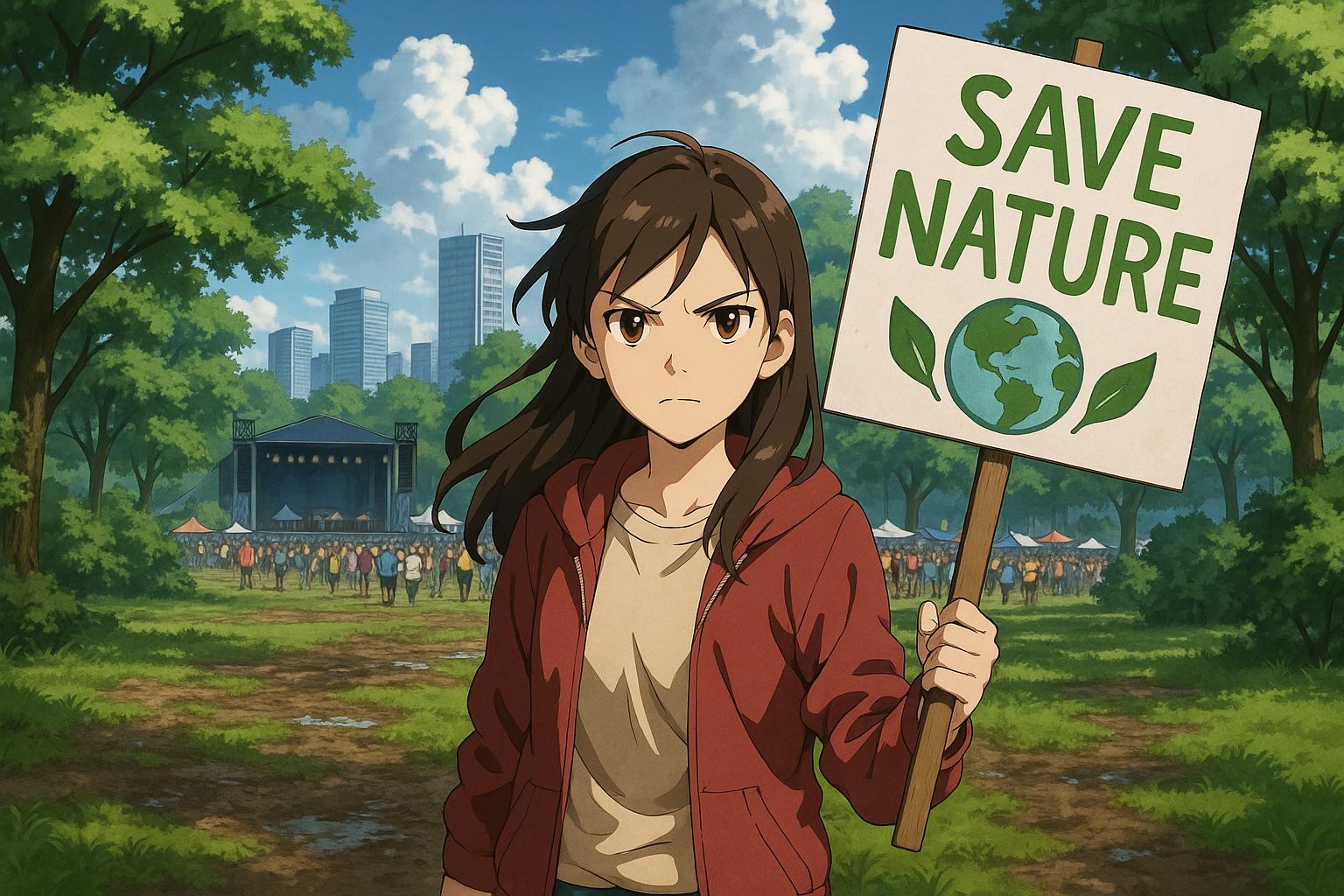A recent ruling by the High Court has shed light on the contentious relationship between local residents and festival organisers regarding the use of Brockwell Park in South London. Rebekah Shaman, a member of the advocacy group Protect Brockwell Park (PBP), successfully challenged Lambeth Council's approval of several large-scale music festivals, arguing that these events not only infringe on public access to the park but also lead to significant environmental harm. This decision could result in a ban on various upcoming festivals scheduled for this summer, including Wide Awake, Mighty Hoopla, and Field Day, which collectively attract an estimated 285,000 attendees each year.
Prior to the court case, PBP raised concerns over the growing frequency of such commercial events, noting that they restrict access to vast areas of the park and often leave the grounds in a degraded state. During the hearing, Shaman's barrister pointed to the park becoming a "mud bath" following a particularly wet festival weekend in 2024. The court determined that Lambeth Council had acted “irrationally” by allowing these festivals to exceed the legally permissible 28 days of temporary usage under permitted development rules, a decision that sparked significant debate around the management of public spaces.
While the court did not immediately halt the impending events, it mandated that Lambeth Council revisit its approval process. The council claims that these festivals contribute culturally and financially to the community, a sentiment echoed by some supporters who argue that events bring joy and engagement to local residents. However, this perspective clashes with voices in the community who prioritise the ecological integrity and accessibility of the park. One local resident, expressing frustration, stated that the annual influx of commercial events seems to overshadow the needs of the community and the park's natural resources.
PBP has garnered notable support, including from actor Mark Rylance, as they argue for a comprehensive approach to park management that balances community interests with cultural activities. Their crowdfunding efforts have been aimed at promoting responsible use of the park and ensuring that future events are subject to proper consultations and environmental considerations.
The tension surrounding Brockwell Park extends beyond Shaman's case, with widespread public sentiment captured in open letters and protests from nearby residents. Many have echoed a call for a compromise that would curb the number of summer festivals while promoting the park’s ecological well-being. Critics point out that decisions about large-scale events appear to be driven by financial considerations rather than community welfare, raising questions about the long-term impacts of such activities on both the environment and social dynamics within the area.
Additional discussions have shown that while Lambeth Council has attempted to involve the community through consultations concerning the festival events, many residents feel that their voices are not being adequately heard or valued. A significant portion of the local population believes that the park should primarily serve the community rather than commercial interests, especially in light of the adverse ecological effects reported after previous events.
As the summer approaches, the future of festivals in Brockwell Park remains uncertain, hinging on the council’s response to the court's ruling and ongoing community pressure. Uproar over the park's preservation highlights a broader issue facing numerous urban green spaces where the clashing interests of culture, commerce, and conservation continue to spark heated debate.
Reference Map
- Paragraphs 1, 2, 4, 5, 7
- Paragraphs 1, 3, 5, 6
- Paragraph 4
- Paragraph 4
- Paragraph 5
- Paragraph 5
- Paragraph 6
Source: Noah Wire Services
